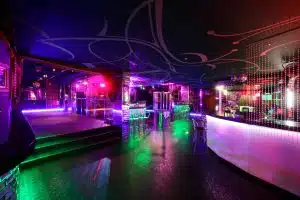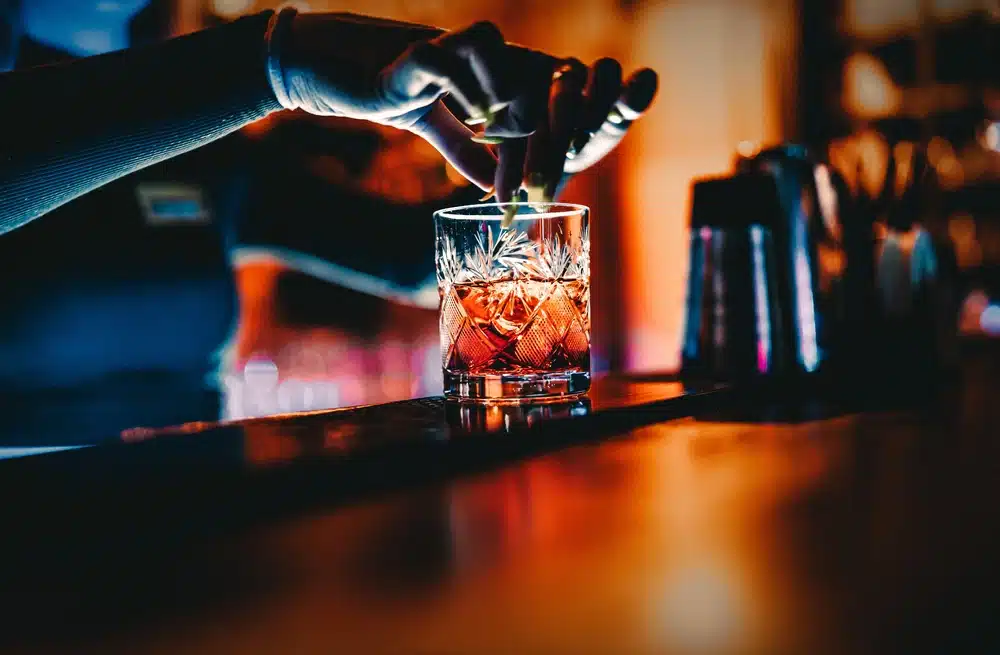
As such, it is crucial for nightclub owners to be aware of the legal landscape and take steps to ensure that their business is in compliance. By doing so, they can avoid potential problems and help create a safe and enjoyable environment for their customers
There are a lot of regulations governing the licensed trade, so taking specialist advice to make sure you comply with all the law would be a wise idea. Here is an overview of many of the areas that will be relevant to your nightclub business venture.
What licences does a nightclub need?
Here is a list of all the licensing surrounding nightclubs in the UK.
Alcohol licensing
Alcohol sales are regulated by the Licensing Act, as are regulated entertainments and hot food sales between 11pm and 5am in England and Wales. In some cases, late night refreshment is exempt from the requirement of a premises licence, and for any location where these activities will take place, a personal licence is required. For those who wish to sell alcohol from premises with a premises licence, a personal licence is required.
Live music licensing changed in October 2012. As long as the audience is less than 500 people, venues do not need a license to provide amplified live and recorded music between 8am and 11pm. It is no longer necessary to obtain a license for unamplified music played between 8am and 11pm, regardless of the size of the audience.
You will need either an alcohol license that includes live music as a licensable activity, or a temporary event notice every time you put on a live music event (the same premises can have up to 12 temporary event notices per year) if you provide live music outside of these hours or amplified live or recorded music within these hours but to more than the maximum number permitted.).
A variety of information about late night refreshment licensing and regulation of alcohol can be found on the Gov.uk website. It is also possible to obtain a personal or premises licence in Scotland. On the Scottish Government website, licensees can find detailed information.
2014 marked the introduction of mandatory licensing conditions in England and Wales. The new conditions replace the ones introduced in 2010 and require you to:
- Alcohol must not be sold below duty plus VAT
- Promotions must not be irresponsible
- Free drinking water must be provided
- Age verification must be adopted
- Smaller measures must be provided
Alcohol retailers in Scotland have been required to operate a Challenge 25 policy since 2011.
County courts grant alcohol licences in Northern Ireland. There are currently no new alcohol licenses available for night clubs in Northern Ireland, so you’ll have to find someone selling or giving up their license. The NI Direct website has more information about alcohol licensing in Northern Ireland. Your local authority will also require an entertainment license in addition to an alcohol license.
Door supervisors
To regulate the security industry in the UK, the government established the Security Industry Authority (SIA). SIA licenses are required for door supervisors to work legally. The applicant must pass a background check and a criminal record check as well as have a recognised door supervisor qualification in order to obtain a licence. Further information can be found on the SIA website.
The door supervisors at some night clubs are now breathalysing and turning away those over their legal limit (usually set between 80 and 100) to stop pre-loading (drinking before going out for the evening). Additionally, the policy is intended to protect the club’s premises license as well as avoid conflict.
Other licences
There are also a number of other licenses you may need, including:
- Indoor sports events require a A licence may be required under the Licensing Act for indoor sports events – indoor sports events involving up to 1,000 people between 8am and 11pm do not requirea licence, but events involving more than 1,000 people or outside of these hours always require one.
- The local licensing authority must issue you a gaming machine permit. With an alcohol licence in Great Britain, you are automatically entitled to have two Category C or Category D gaming machines, although you must notify your local authority of your plans. You need a gaming machine permit if you want to offer more than that number. Gaming machines are allowed in Northern Ireland based on your alcohol license. Upon applying for your license, the licensing authority will decide how many you can have. It’s also likely that you’ll be required to register with HMRC for Machine Games Duty
- A Music Licence from PPL PRS Ltd
The Information Commissioner’s Office (ICO) may require you to register if you use CCTV. CCTV systems are likely to be a requirement for alcohol licences. GDPR has improved data privacy protections for individuals starting May 2018.
A local authority environmental health department must also be contacted if you plan to offer catering.
Alcohol licensing legislation
In the case of recorded music and the sale of alcohol, the following regulations apply:
- The Licensing Act in England and Wales
- The Licensing (Northern Ireland) Order and the Local Government (Miscellaneous Provisions) (Northern Ireland) Order 1985
- The Licensing (Scotland) Act in Scotland
Alcohol sales require a license and compliance with the legislation if you intend to sell it. The following websites provide more information about alcohol licensing and the requirements of alcohol legislation throughout the UK:
- The Home Office
- NI Direct
- The Scottish Government
Door supervisors
In order to regulate the private security industry, the Security Industry Authority (SIA) was established. SIA licences and training are required for door supervisors. On the SIA website, you can find information on who needs a license and how to apply.
Weights and measures
Alcoholic drinks are regulated by law in terms of quantity. Trading Standards Business Companion provides detailed guidance on the sale of alcohol in licensed premises.
A duty-paid tax stamp must be displayed on spirits you stock or sell.
Gaming legislation
Gaming legislation applies to coin-operated amusement machines offering games of chance. Gaming machines (category C and/or category D machines) can be provided in Great Britain under the Gambling Act. If you plan to provide more than two machines, you must notify your local licensing authority. A licensed premises gaming machine permit is required if you plan to provide more than two machines. A permit will specify how many machines you can have.
If you have an alcohol license in Northern Ireland, you are entitled to a certain number of gaming machines. The licensing authority determines how many you can have when you apply for your license, but there isn’t a set limit. Visit the Gambling Commission website to learn more about gaming laws in Great Britain. Northern Ireland’s gambling laws are available on the Department for Communities website.
Machine Games Duty (MGD) applies to gaming machines (including skill with prizes machines), so you must register with HMRC and submit your MGD return and payment at the appropriate time. The Gov.uk website has more information about MGD.
Food safety
Businesses in the food industry are required to comply with strict food safety laws, and they must register with their local environmental health departments. In order to keep the operation of your business hygienic, you should speak with your local environmental health officer for advice and guidance on the types of equipment and procedures you need to install in your premises.
Data protection
Businesses that use CCTV systems may need to register with the Information Commissioner’s Office. (Your alcohol license may require a CCTV system.) The General Data Protection Regulation provides additional protection for personal information from May 2018.
Workplace smoking ban
You must display appropriate ‘No Smoking’ signs in all public places since smoking is no longer permitted. If you are unsure of how the ban affects you, you should contact your local authority. The HSE website also provides more information.
Health & safety, fire
It is your responsibility to ensure that all aspects of both staff and customer health and safety at the venue are upheld by health and safety legislation. Among the most important matters are:
- Keeping slip and fall risks to a minimum
- Welfare of staff
- Maintaining gas and electrical installations and appliances
- Safety considerations for windows
- Preventing injuries during the delivery of beer and other products in the cellar
- Conducting COSHH assessments so that hazardous substances, such as beer line cleaners, are used and stored safely
- An appointed first-aid person and adequate first-aid facilities
- A good ventilation system and free water
Legislation regarding workplace health and safety and fire safety must be followed.
Employment legislation
Employment laws must be followed by anyone who employs staff. Employment laws cover such areas as recruitment, employment contracts, pay, working hours, holidays, employment policies, sick leave, maternity leave, paternity leave, discrimination, discipline, grievances, dismissals, and redundancies.
Read more: Sector trends in the nightclub industry
Insurance for a nightclub
You should speak with a broker or insurer about how your business will operate – they will tell you what insurance cover you need by law, and which you should consider. The following might be included:
- Premises, fixtures and fittings, glass breakage
- Goods in transit (for example on the way back from a cash and carry)
- Audio/visual equipment
- Cash
- Business interruption
- Loss of licence
- Employer’s liability
- Public liability
- Cloakroom liability
- Product liability
- Motor insurance
Conclusion
Nightclub owners need to be aware of legal issues that they may come across, these include holding the correct insurances in order to defend any claims from members of the public. Legislation is also changing on late night venues due to Covid restriction and licensing regulations. Late night venue owners need to comply with local police licensing teams to prevent any future legal issues from the courts.
Lee Jones is a seasoned Business Finance Specialist with over two decades of invaluable experience in the financial sector. With a keen eye for market trends and a passion for helping businesses thrive, Lee has become a trusted advisor to countless organizations seeking to navigate the complexities of finance.


